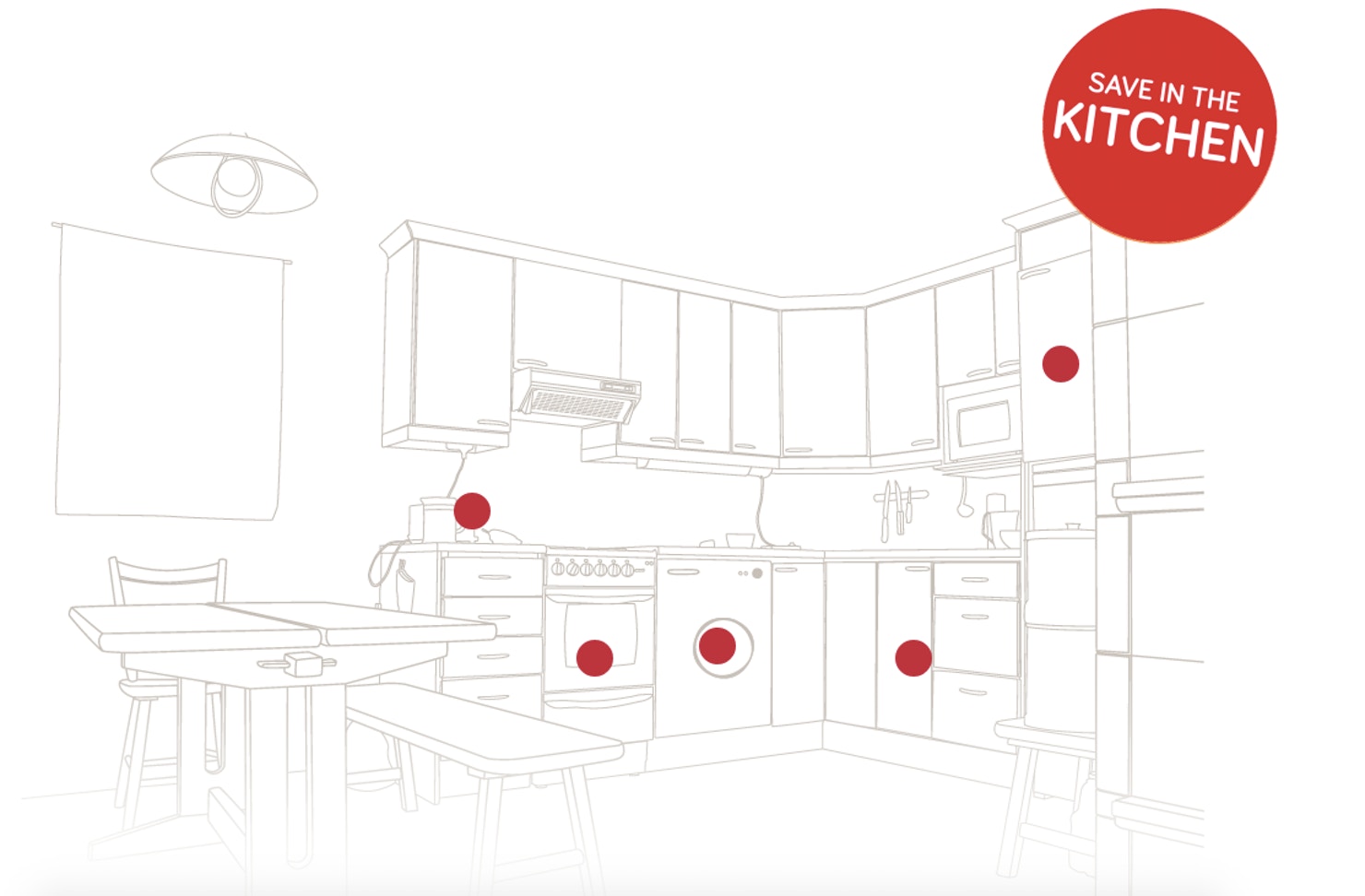Energy saving tips for your kitchen
PINERGY puts you back in control of your spending. Here are some useful electricity saving tips to help you maximise your savings.
DISHWASHER
- Set your dishwasher at 50 degrees celsius or ‘low’. (Check your manufacturer’s manual first to see if you can use 50 degrees water)
- Wash only full loads and use the shortest cycle to get your dishes clean.
- Turn off the dishwasher after the wash and rinse cycles.
- When dishes air dry, you’ll save on heating costs. On newer models, use the heat-off setting or the energy-saver dry option.
- Your dishwasher will operate more efficiently if you unclog the drain of food particles and clean it weekly.
FRIDGE FREEZER
- Your refrigerator/freezer uses more electricity than any other appliance in your kitchen so avoid opening the door to browse. Each time you do, cold air escapes and your energy costs increase.
- Let hot foods cool before putting them in your refrigerator or freezer as hot foods cause the motor to work longer and harder.
- Leave room in front of your refrigerator/freezer to allow cold air to circulate better. Because frozen food stays cold longer than air, it’s good to keep your freezer full, but not packed.
- You’ll save energy by placing water-filled containers in empty spaces.
- Running two refrigerators increases your energy bill plus, older refrigerators are less efficient than new ones.
OVEN/HOB
- Thaw foods and cut vegetables into small pieces. They’ll take less time to cook.
- Put lids on pots and pans and make sure they’re the right size for the burners. Foods will cook faster and use less energy.
- Preheat the oven only when the recipe calls for it.Use glass and ceramic dishes. They hold heat better and you can lower the oven temperature 50 degrees.
TOASTER & KETTLE
- The toaster is more energy efficient than the grill for toasting bread.
- When making tea or coffee boil only the amount of water required, just make sure the heating elements of electric kettles are covered.
WASHING MACHINE
- Wash and rinse your clothes in cold water instead of hot to save on water heating costs. Use a cold water detergent.
- Set the water level on your washing machine to match the size of the load and save two ways – on water and energy.
- You’ll save more by waiting until you have a full load before you wash.
- Add the right amount of detergent.
- Too many suds make your washing machine work harder and use more energy.
TUMBLE DRYER
- Fill your clothes dryer, but don’t overload it.
- Your clothes will dry faster when they have room to tumble.
- Over-drying wears out your clothes and wastes energy.
- Stop your dryer when the laundry is dry by setting the timer or using the auto dry cycle.
- Your dryer’s lint trap helps warm air flow better and dries your clothes faster.
- Make sure to clean it after each load.

